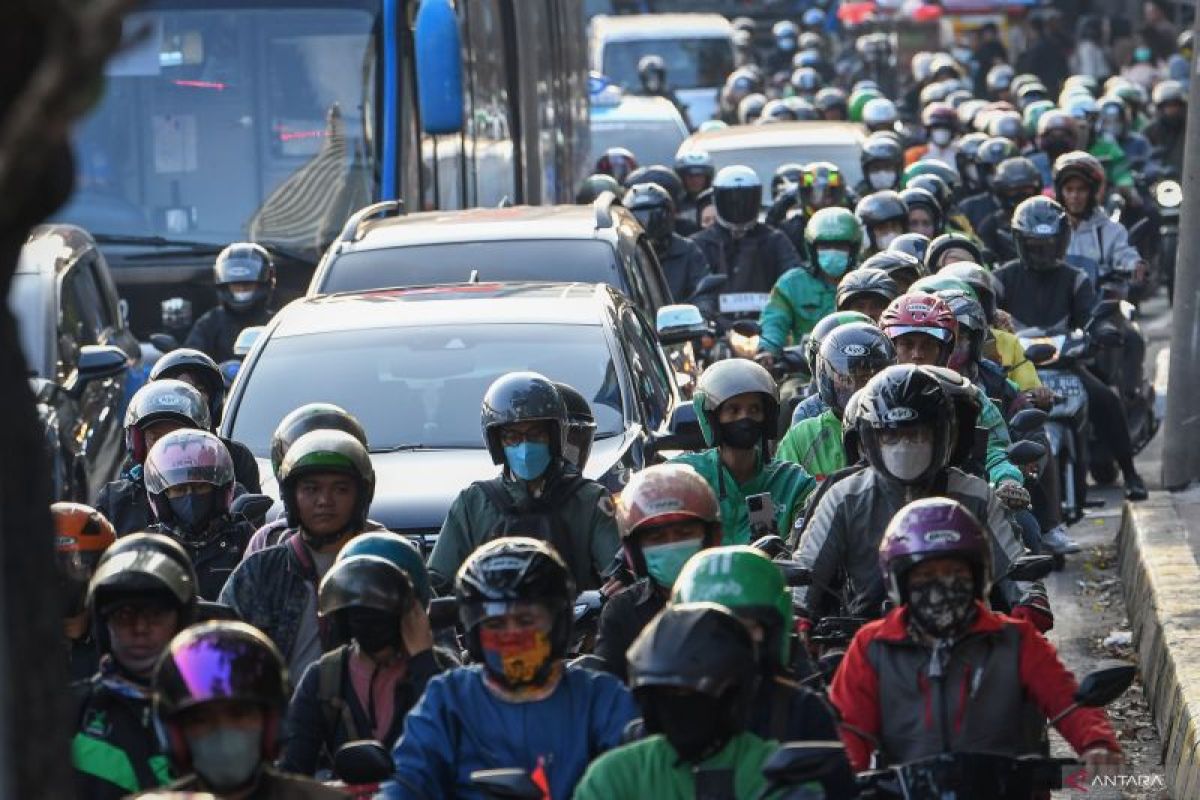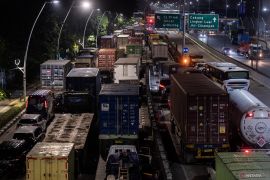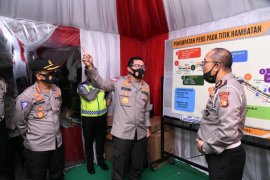"The traffic volume on September 4–8 (2023) compared to August 7–11 decreased by 1.69 percent," said Syafrin Liputo, head of the Jakarta Transportation Service, on Tuesday.
ASNs who work from home in Jakarta account for only 5 percent of the total workforce in the capital city, he noted.
Therefore, the decline in traffic volume caused by the WFH policy has had only a slight impact, he added.
Liputo said that the volume of traffic entering Jakarta has actually increased. During the September 4–8 period, traffic volume has increased 1.57 percent, with the average number of vehicles reaching 2,626 per day, he explained.
Motorcycles accounted for 77 percent of the vehicles plying on the road during the period, he added.
Earlier, the Jakarta Air Pollution Control Task Force informed that private companies were also implementing a WFH policy with a capacity of 20 to 75 percent to reduce air pollution.
"The percentage of private companies employees implementing WFH policy is 20 percent. Some private companies also implement above 75 percent WFH," said Ani Ruspitawati, the task force's spokesperson on September 8.
She added that the implementation of WFH in private companies has so far been recorded in 168 offices.
The decision to implement the WFH policy for 50 percent of ASNs was taken by Acting Jakarta Governor Heru Budi Hartono in August to ease traffic congestion and improve air quality in the capital city.
He then increased the number of ASN working from home to 75 percent during the ASEAN Summit on September 5–7.
Related news: WFH policy devised for ASEAN Summit, not pollution control: minister
Related news: WFH for civil servants increased to 75 percent during ASEAN Summit
Translator: Siti Nurhaliza, Resinta S
Editor: Anton Santoso
Copyright © ANTARA 2023











